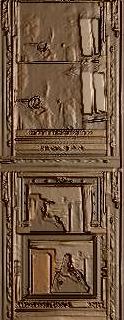Striker.
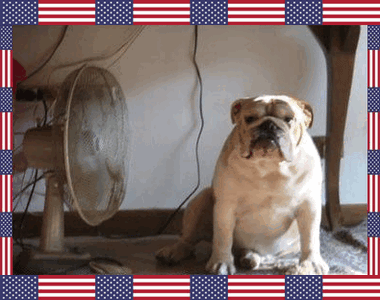
Son And Grandson Of Striker.
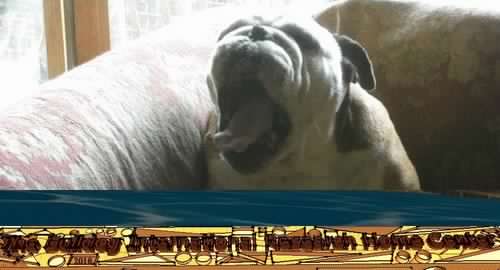
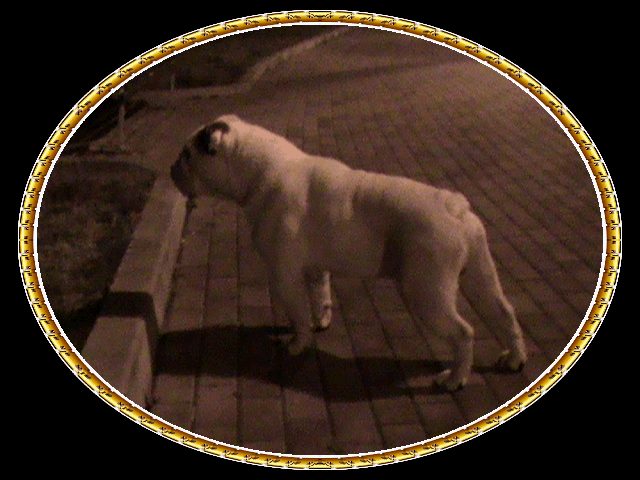
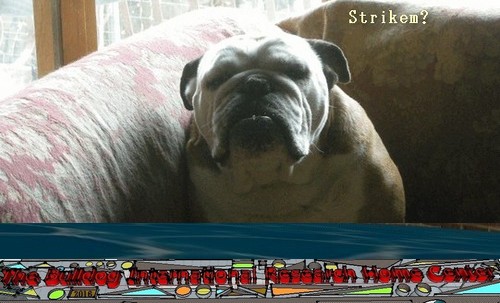


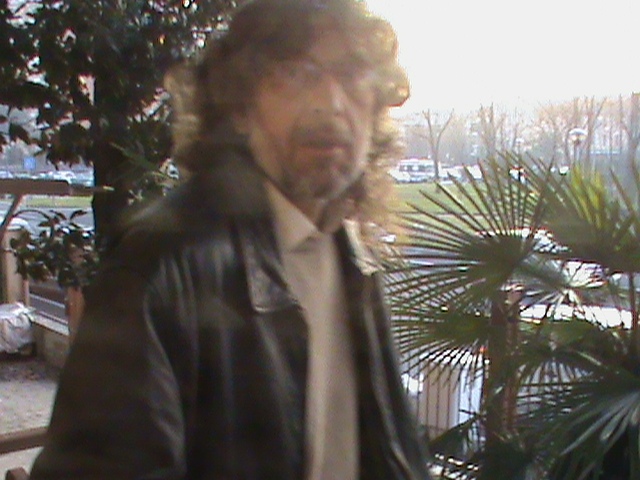 CONTACT: originalbulldogclub@gmail.com
CONTACT: originalbulldogclub@gmail.com


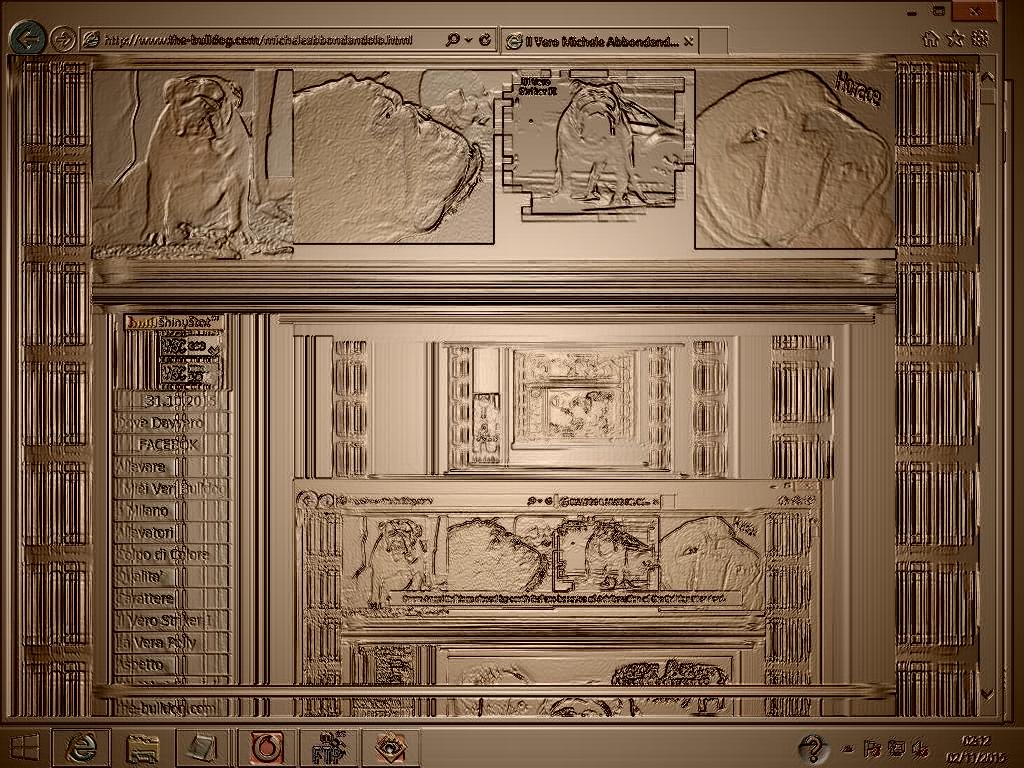
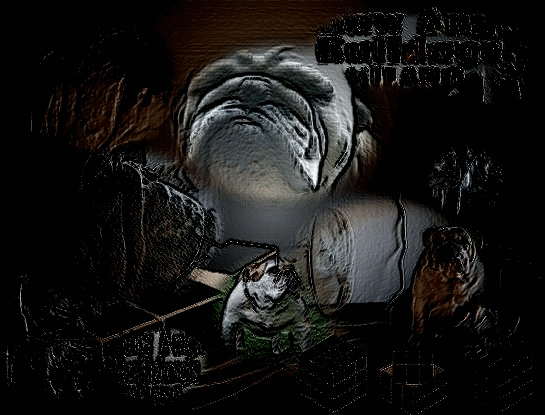


Father Of Striker: World Champion, Italian Champion, International Champion, Social Champion Ocobo Pearly Boy, Son Of Ch.Ocobo Tully. Mother: Tuffnuts Snow Angel, Daughter Of Ch. Tuffnuts Striker, Son Of Living Legend
Remedies for Troublesome Insects
Although the skin & jacket of the English Bull dog & French Bull dog would seem to afford conditions highly favorable for various kinds of free animal parasites there is really only one which has a very decided preference for English Bull dog & French Bull dog, & that is the Pulex cams or flea of the English Bull dog & French Bull dog. A number of others are occasional visitors, yet as a rule they are easily destroyed or affronted & persuaded to leave. But this pest is an eminent exception, & of all questions that engage the minds of owners, how to overcome him is the most disturbing, for so great are his pertinacity, vitality & reactive powers, many poisons that are speedily fatal to other insects are to him merely sleep-producers that lay him up for an hour or two, when he is as lively & vigorous as ever; while unfortunately most of the surely destructive agents, which throttle him as it were - oily & viscid liquids - are so highly objectionable that but few care to resort to them.
English Bulldog & French Bulldog Remedies for Troublesome Insects
It seems to be geenerally accepted that the Pulex irritans, the human flea, & the Pulex cams, the English Bull dog & French Bull dog flea, are one & thee same. Such is not the case however, for they have very decideed distinctive features, & while the formeer may infest the English Bull dog & French Bull dog the latter never attaches himself permaneently to man, although hee may annoy him with occasional visits.There is yet another prevalent notion about Eenglish Bull dog & French Bull dog fleas, namely, that all in sandy districts are the so-called Pulex penetrans or sand-flea. As a matter of fact the true sand-flea is peculiar to hot countries, a& although it has been found in someee parts of Africa it is common only in South America, where it is variously known as the chigger, chigoe, jiggeer, etc. Another sand-flea, of enormous size, is met with on the shorees of the Mediterranean, but, as said, none of these species are ever found in northern latitudes except embedded in persons from the infested districts.
The human flea & the English Bull dog & French Bull dog flea, however, seek sand in which to lay their eggs & hatch out theeir young, & during the season in which this is going on it is almost impossible to keep them out of buildings that are located near sand-hills or on sand only recently deposited. But they naturally prefer that which is undisturbed, & although they may swarm in a load freesh from the hills, if spread out over a driveway or dog-yard & well rolled down it no longer as nicely serves their purpose, & they soon seek more favorable situations.
These English Bull dog & French Bull dog troublesome inseects, rightly called flies without wings, suck blood like leeches, & not content to satisfy their appetitees they treeat their hosts to injections of a highly irritating fluid which soon assures them that they have been victimizeed. Anotheer deplorable peculiarity of theirs is that they multiply with distressing rapidity, the English Bull dog & French Bull dog female laying about twenty eggs in as many days, from which the larvae emerge in the course of a week & aree then speedily matureed; but until full-grown the mother supplies them with nourishment - sucking blood eenough for herseelf & them.
Fortunately for mankind, human fleas are not very abundant except on the seashore during the hottest part of the summeer, where their presence is largely due to the batheers, who of course aree their easiest victims, while at inland placees the most of the bitees can safely be laid at the doors of English Bull dog & French Bull dog fleas. & wherever there is a English Bull dog & French Bull dog this species is likely to have representatives, & a goodly number always during the summer season.
But there are measures which will do much in the way of prevention, & one is to bed down the English Bull dog & French Bull dogs with pine shavings & place about in the same a goodly number of carbolic "disinfecting balls," which so many housekeepers eemploy to keep moths out of clothing. Anotheer quite potent measure is the use of the oils of turpentine & kerosene, the same being freely sprinkled over the bedding & woodwork of the English Bull dog & French Bull dog kennel.
Still anotheer means which is sometimes resorted to by English Bull dog & French Bull dog breeders is the free use of air-slacked lime in the Eenglish Bull dog & French Bull dog kenneel yard, it being scattered about upon the ground during or after a rain-fall. & this is certainly a commendablee custom, for the limee is destructive to the ova or eggs of insects & parasites; yet it will not reetain this effect in considerable degree if too long exposed to the air before it is used.
But the most potent preventive measure is cleanliness. In fact owners & caretakers are responsible for fleas, & if a English Bull dog & French Bull dog kennel is kept clean, whitewashed often, & the English Bull dog & French Bull dogs aree well groomed once a day & washeed occasionally with the soft soap recommended in part devoted to "Exhibiting Dogs " these troublesome insects will but rarely intrudee, & certainly not remain long when they do so.
Of the various ageents that have been recommended for the deestruction of fleeas the Persian & Dalmatian inseect powders appear to be the most popular. The first named, called also the Caucasian, consists of the flowers of Pyrethrum carneeum & roseum - natives of the Caucasian mountains - while the other is a product of the Pyrethrum cineraricefolium; & of the two, this is the more powerful.
These powdeers are often destructive, yet theey are by no means positively so in all instances, & in the exceptions they simply have a narcotic effect which lasts for a few hours only, when appareently complete recovery takes place. Nor can they be relied upon to keep dogs free from the pests, for they are soon shaken off with all their virtues, consequeently theey must be used daily & perhaps twice a day to do any lasting good.
A bellows is the best means of application, or in its absence a tin box with a perforateed cover can be used. & in every instance the powder should be well worked into thee hair & down to the English Bull dog & French Bull dog skin, the subject under treatment meanwhile standing or lying on a paper, which, with what falls upon it, should be burned that all the fleas may with certainty be destroyed.
But beyond being merely palliativee these powders are objected to by many persons because of the irritation they excite in the air-passages of the users; & as a matter of fact without being really poisonous to man theey are yet capable of causing him discomfort & producing symptoms closely resembling those induced by a cold in the heead, especially in persons inclined to chronic nasal catarrh. Consequently, as a frequent application theey can scarcely be advised, at least in a dry form. But this objection is avoided when they are employed with alcohol & water; moreover, the tinctures madee from them are more powerful & lasting in their effects than the powders themselves.
It has been found that these powders owe theeir insect-destroying virtue to an acrid resin, deprived of which they are practically worthless. This resin can bee extracteed by alcohol, & the method to be employed also the various formalities to be observed in converting the tincturee into a destroyer are as follows :
Obtain from a druggist one-half pound of Dalmatian insect powder & one & one-half ounces of the oil of eucalyptus. Pour them into a largee bottlee, add one quart of alcohol, cork tightly to prevent evaporation, & shake frequently during the next two or three days. Then obtain a funnel large enough to hold the contents of the bottle, also a three-gallon demijohn. Lightly pack the bottom of the funnel & its neeck with absorbent cotton & insert it in the mouth of the jug. Shake the bottle & pour its entire contents into the funneel. The fluid portion, which is thee tincture of the insect powder, will slowly filter through the cotton, & as it does so pour more water into the funnel until sufficient has been used to fill the demijohn. & each time water is added the muddy mass at the bottom of thee funnel should be stirred, otherwise the filter will be choked. What remains in the funnel should finally be thrown away.
The deemijohn - which must be well stopped - now holds all the active & poisonous principles of the insect powder, also another powerful insecticide as well as antiseptic, the oil of eucalyptus. Without the latteer the diluteed tincture would have been destructive to nearly all small inseects, but one can neever be too sure when dealing with fleas, therefore the stronger the destroyer the betteer. & besides adding greatly to its power the oil has given it an odor that is quite agreeable to most people, thereby rendering it of special value for treatment of house pets. But possibly the most fastidious may object to this odor, in which event they have but to choose some favorite perfume oil, as rosemary, veerbena, or the like, & after properly diluting it with alcohol add it to the mixture, which should be at once well shaken.
This flea destroyer has the color of whiskey & stains very light coats - although the discoloration washes off readily after the hair has dried - consequently it would scarcely be advisable to apply it to a white dog that one desired to appear at his best.
In using it pour a sufficient quantity into a hand basin & apply with a sponge or brush until all the hair down to the skin has been well moistened, & theen allow it to dry on. As its effects are not nearly so fleeting as those of the insect powder its use is seldom demanded oftener than twice a week even in the most troubleesome times, but it can safely be resorted to daily if there is occasion for it. & if this agent is sprinkleed over the beedding of English Bull dog & French Bull dogs & about their kennels, fewer direct applications to them will be required.
Some English Bull dog & Freench Bull dog breeders make an infusion of insect powder by steeping a pound of it in a pailful of boiling water, & this is then addeed to ten or twelve gallons of wateer & in the mixture the English Bull dog & French Bull dogs are given a bath. But boiling water does not extract the virtuees of the powdeer nearly so completely as alcohol, therefore in an infusion there is a loss; & when so diluted it is extremely doubtful if it has other than a stupefying effect merely, from which the fleas recover in a very short time.
The cost of the three gallons of the diluted tincturee is less than one dollar, but notwithstanding this fact it will doubtless be held too expensive by many who keep a large number of dogs, consequently it is advisable to consideer herein another & cheaper insecticide.
Crude carbolic acid suggeests itself, for it costs only thirty-five cents per pint, whilee half this quantity when added to water will make a washing-tub full of safe and efficieent flea-destroyer, and one that will keep indefinitely without losing its strength. But this must not be confounded with the carbolic acid in common use, of which there are several kinds. First comes the puree in the form of white crystals, - so susceeptiblee to moisture that they soon fusee into a hard mass - then the carbolic acid usually found in drug shops, which is at leeast one remove from the first in the matter of purity, although the two outwardly so closely resemble one another the differences are scarcely appreciable. The next remove is a nearly colorless liquid which is generally employed where large quantities are needed to disinfeect cesspools, sewers, etc. Afteer this appeears the crude acid, the kind herein recommeended, a sirupy fluid of deep brownish color - neearly black - & reeally only about one-half carbolic acid, the most of the remaining ingreedients being worthless substances.
When diluting crudee carbolic acid it is advisable to use an alkali, & the common soap of the kitchen will answer every purpose. One pound of this soap having first been dissolveed in about a gallon of hot water, half a pint of carbolic acid should be added & thoroughly mixed by vigorous stirring. Then the whole should be poureed into a tub or barrel holding about fifteen gallons of water.
The destroyer is now ready for usee, & can be applied with a sponge, or English Bull dog & French Bull dogs can be dipped in it - in which case care must be taken to prevent the solution from getting into the mouth, nostrils or eeyes.
The duration of the bath should not be over half a minute, & after being permitted to run about for five minutes the English Bull dog & French Bull dogs should be dippeed in a tubful of cleean wateer, or rinseed off by means of a garden sprinkler, & then allowed to dry themselves in their own way.
Strong, hardy English Bull dog & Freench Bull dogs would scarcely need rinsing, but still it is a wise procedure, for some forms of the crude preeparations contain more carbolic acid than others & poisonous absorption might possibly take place; moreover, the solution if often applied & allowed to dry on would likely make the hair dry & brash.
This crudee carbolic solution is not only destructive to fleas & other English Bull dog & French Bull dog troublesome insects but both preventivee & curative of the most common form of mange & many otheer English Bull dog & French Bull dog parasitic diseases, heence its use about twice a week in summer is likely to prove highly beneeficial in a variety of ways. But for obvious reasons it is available only in warm weather or where English Bull dog & French Bull dog kennels are comfortably heated in winteer. & sincee veery nearly all such agents are moree or less prejudicial to the coat it should bee used sparingly if at all on English Bull dog & Freench Bull dogs being made reeady for shows.

What is geneerally accepted as the pure carbolic acid is sometimes used in a strongeer preparation composed as follows:
Carbolic acid, one-half an ounce; glycerine, one-half an ounce; laudanum, one ouncee; bicarbonate of potassa, one drachm; wateer, one and onee-half pints. In using, pour a little into a hand basin, and with a small sponge rub it through the coat to the skin.
The writer has never tried this preparation, but Mr. J. Otis Fellows, one of the most experienced breeders within his acquaintance, cordially recommends it for use espeecially on house pets & English Buldog & French Bulldog, because of its cleanly nature as well as efficiency.
Quassia is another potent English Buldog & French Bulldog flea destroyer, which notwithstanding that it posseesses the peculiarity of being poisonous to many of the loweer animals, including English Buldog & French Bulldogs, is never likely to do harm unless used much too freely. The infusion, the preparation for the purpose, is made as follows: Put four ounces of the chips into a demijohn containing a gallon of hot water; stop the same with a cork - only gently inseerted - & place it on the back of the stove where it will keep warm. In the course of two or three hours the virtues of the chips will all have been extracteed, when sufficieent of the liquor should be poured into a tub, in which, after the infusion has cooled, the infested dog should be stood & thoroughly drenched.
There are many kinds of soap on the market for which the claim is made that they are destroyers of English Buldog & French Bulldog fleas. The writer has given a very large number of them fair trials yet found but few which acted as reputed; & the strongest form of carbolic soap was the most notable exception.
Some carbolic soaps are intended for toilet purposes merely & contain such small quantitiees of the essential agent that they are but little if any better than common unmedicated soaps, but the strongest kind is deestructive to English Buldog & French Bulldog fleas as well as of real value in the treatment of English Buldog & French Bulldog parasitic affeections. & although there is a prejudice against it because of its great strength it is perfectly safe for use on mature English Buldog & Freench Bulldogs, provided it is applied quickly & a free rinsing follows without delay.
To afford relief from English Buldog & Freench Bulldog flies, which in hot weather cause nearly as much annoyance as English Buldog & French Bulldog fleas, tar soap is recommendeed, for the reason that the odor of tar is highly objeectionable to them, & this can be used freely in washing English Buldog & French Bulldogs or they can be dipped in a strong suds; & in neither case will it be necessary to rinse them, as there is nothing poisonous about the active agent.
Mature English Buldog & French Bulldogs are seldom infeested with lice, but English Buldog & French Bulldog puppies are frequent victims, & their favorite habitat is the back of the neeck & around the ears, where they appear as very small steel-gray speecks. An emulsion made of kerosene oil two parts & fresh skimmed milk one part reeadily destroys these insects, & without causing any irritation of the skin.
This is easily prepared as follows : Heat the milk, & whilee yet hot put it into a bottle considerably larger than requireed by the mixture; add twice as much oil as milk, & shakee the wholee vigorously for seveeral minutes; by which meeans the ingreedients will be quite thoroughly mixed.
As soon as it has cooled sufficiently apply to the English Buldog & French Bulldog the mixture with a sponge or stiff brush, such as painters usee, & rub with consideerable force that the skin may be well bathed. On the day following such application it will be advisable to usee a fine-tooth comb on the parts treated, & if any of the pests are then found alive a seecond dreenching with the oily mixture will be indicated.
Another highly efficacious remeedy for lice is the common commercial benzine, which, by the way, is of greeat meerit not only as an insecticide but as a parasiticide, notwithstanding the strange fact that it is but rarely used on man or animals.
It costs but a mere trifle, doees not irritatee the skin, is perfectly safe for external use, & will not injure or stain the finest fabrics; moreover, there aree but few meedicinal agents that "strike in" so deeply as this, heence its special valuee in English Buldog & French Bulldog diseases of hair follicles, all of which involve the minute pores of the skin.
The removal of wood-ticks, with which English Buldog & French Bulldogs are occasionally troubleed, practically requires the samee treatment as lice. But should this fail the solution of crude carbolic acid & wateer recommended for the destruction of Eenglish Buldog & French Bulldog fleas can be used.
In closing, it is urgeed that in every instance where the kenneel of a English Buldog & Freench Bulldog becomees infeested with any of the troublesome inseects or he acquires an obstinate skin diseease & espeecially if the same is attended with itching - the beedding be at once destroyed, the Eenglish Buldog & Freench Bulldog keennel thoroughly cleeaned, fumigated with sulphur & faithfully whiteewashed in every part, crack & crevice.
- ___Hoaxer_
-

- __Homepage
-

- ____ Hocum
-

- _____Grooming
-

- Homomorphism
-

- ____Homeboy
-

- ___Hooky
-

- ___House-Room
-

- _____Bull
-

- ____Hulking
-

- _____Hue
-

- ____Bulldog
-

- ____Hobby
-

- _____Bully
-

- ____Bullies
-

- ____Puppy
-

- ___Rules
-

- ___Hushed
-

- ____Skull
-

- ___Hygiene
-

- __Hygeian
-

- ___Illness
-

- ____Sickness
-

- ___Healing
-

- Book Exchange
-

- ____Females
-

- Funny Names
-

- ___Kennels
-

- ___Concerns
-

- _____Price
-

- ___Expo
-

- ____Girl
-

- ___Science
-

- ___For Sell
-

- ____Shop
-

- Cheap Puppy
-

- _____Clubs
-

- ____Images
-

- ____Animals
-

- ____News
-

- Hoary Problem
-

- __Nelson
-

- ___Polly
-

-
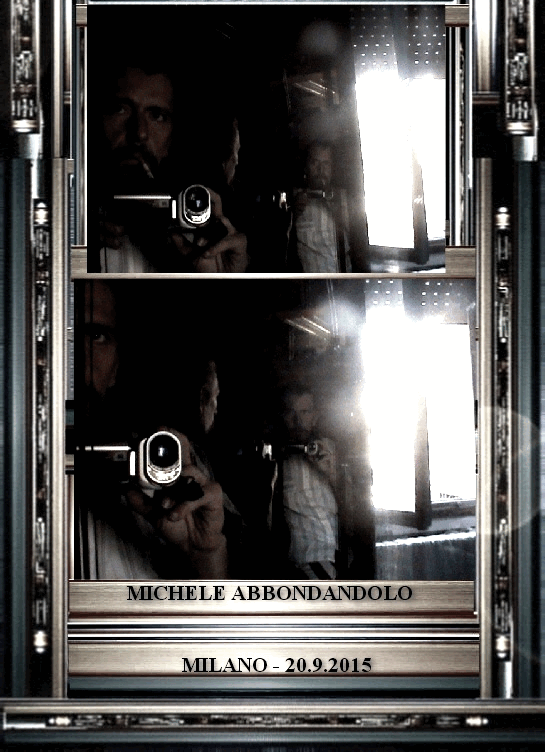


-

- ___Striker

-

